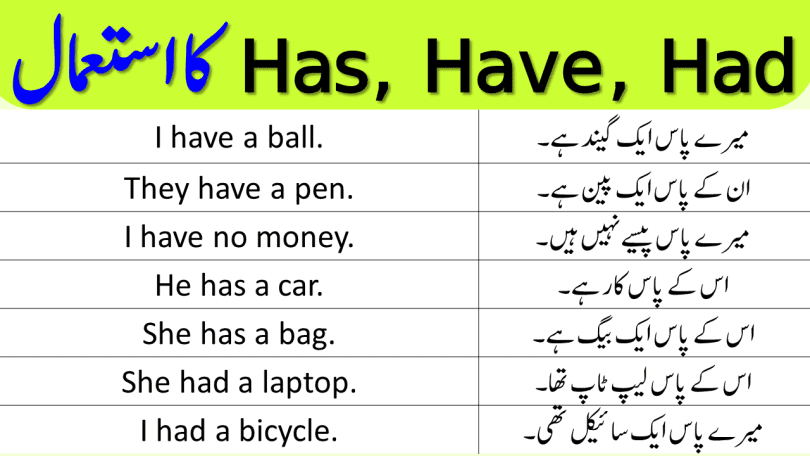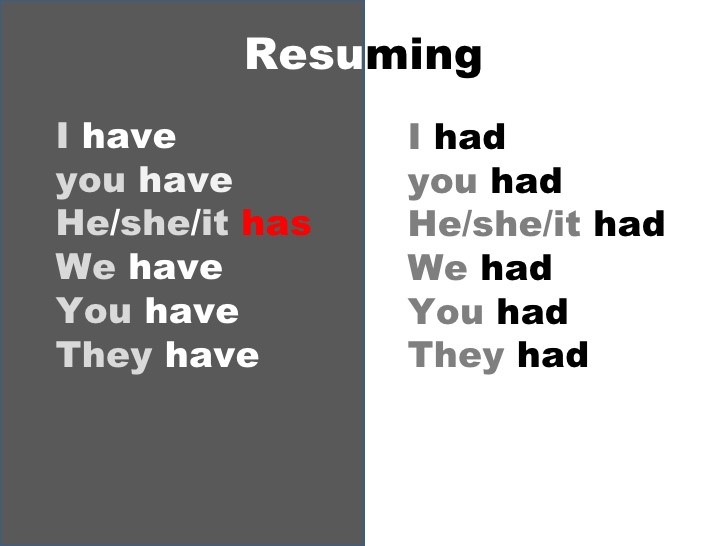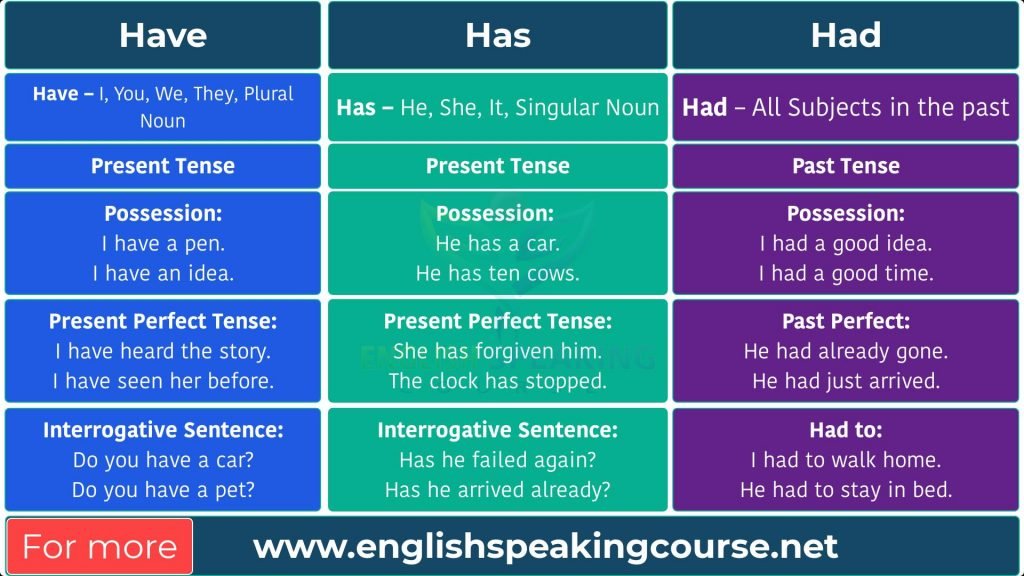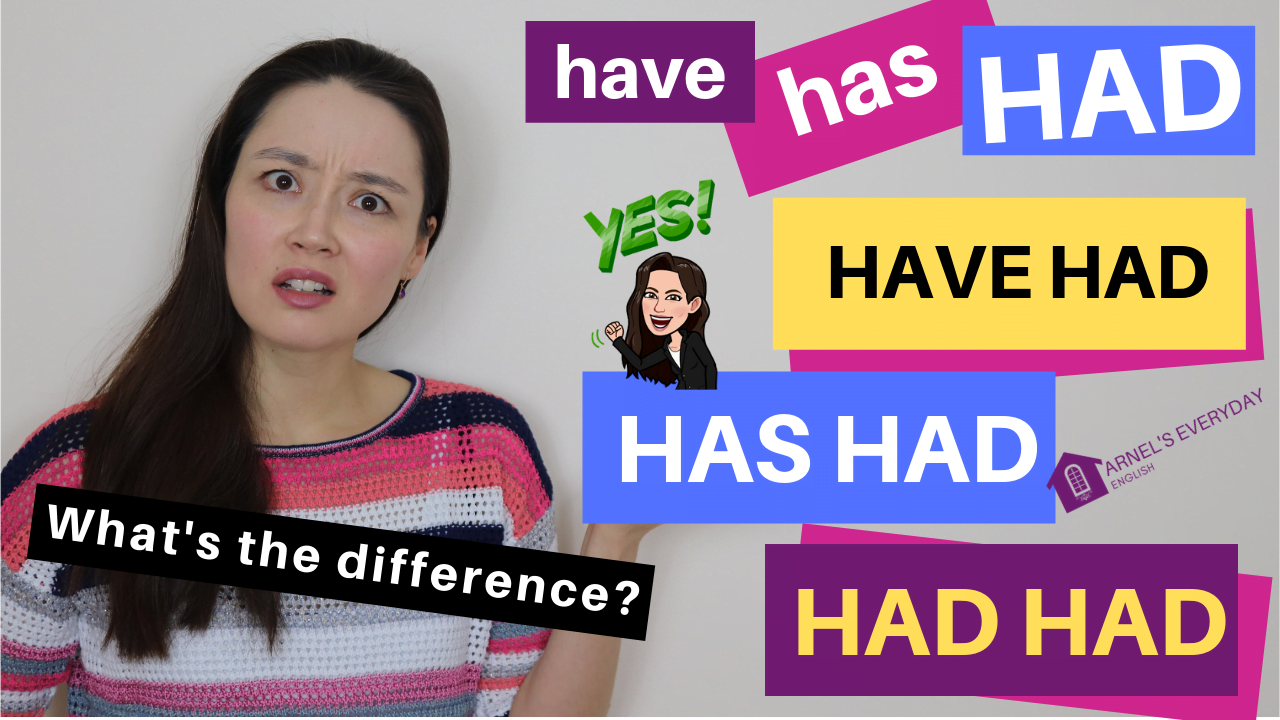The words "has" and "had" are both forms of the verb "have," which is used to indicate possession, relationship, or a state of being. The difference between "has" and "had" is that "has" is the present tense, while "had" is the past tense.
"Has" is used in the present tense to indicate that someone or something possesses something or has a certain characteristic. For example:
- She has a new car. (She possesses a new car.)
- He has brown eyes. (He has the characteristic of brown eyes.)
"Had" is used in the past tense to indicate that someone or something possessed something or had a certain characteristic in the past. For example:
- She had a new car, but she sold it. (She possessed a new car in the past, but no longer does.)
- He had brown eyes, but now he wears colored contacts. (He had the characteristic of brown eyes in the past, but no longer does.)
In addition to indicating possession and characteristics, "have" can also be used to indicate a state of being. In this case, "has" is used in the present tense, and "had" is used in the past tense. For example:
- She has been feeling sick lately. (She is currently in the state of feeling sick.)
- He had been feeling sick, but now he's better. (He was in the state of feeling sick in the past, but no longer is.)
It's important to note that "has" and "had" can also be used as auxiliary verbs in the formation of certain tenses. For example, "has" can be used as the auxiliary verb in the present perfect tense, while "had" can be used as the auxiliary verb in the past perfect tense. The present perfect tense is used to indicate that an action was completed at some point in the past, and it has an effect on the present. The past perfect tense is used to indicate that an action was completed before another action in the past.
In summary, "has" is used in the present tense to indicate possession, characteristics, or states of being, while "had" is used in the past tense for the same purposes. It's important to pay attention to the tense of a sentence when using "has" and "had" to ensure that your writing is grammatically correct.







